5 Secrets to Leverage AI For Lead Generation
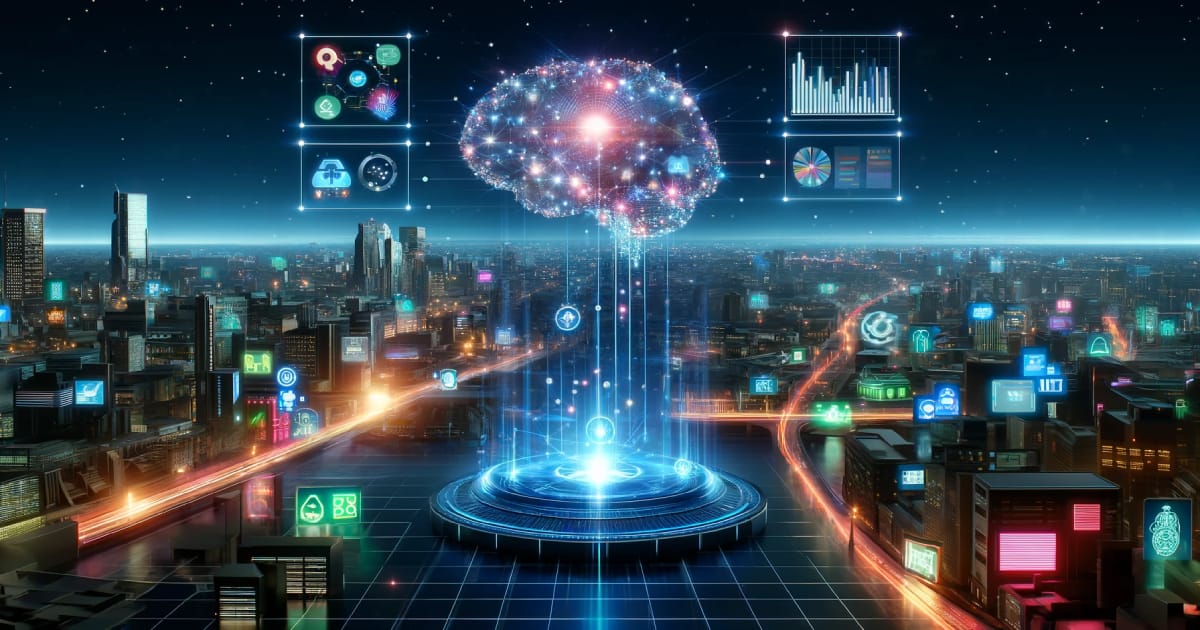
Getting new potential customers is key for businesses to grow and last long-term. Using new advanced technologies like Artificial Intelligence (AI) is very important to stay ahead of competitors. AI's great abilities to process large amounts of data and make predictions are changing how companies find new potential customers.
AI does more than just automate tasks. It provides a great opportunity to make finding new potential customers more targeted, efficient, and effective. AI can use predictive analysis to identify high-quality leads. It can also use AI chatbots to interact with potential customers. AI is changing how businesses do marketing and sales. AI also allows personalization and optimization to better convert leads into loyal customers.
This article reveals 5 innovative secrets for using AI to turbocharge your lead generation. Whether you are an experienced marketer looking to improve your strategies, or a newcomer wanting to make a big impact - these insights will help you unleash AI's transformative power for lead generation.
Secret 1: Predictive Analytics for Identifying High-Quality Leads

Predictive analytics is a leading way AI is revolutionizing how businesses find new potential customers. It provides an advanced approach to look through large amounts of data to identify the highest quality leads. This AI-driven method uses historical data, statistical calculations, and machine learning to predict what potential customers may do in the future. This makes predictive analytics a crucial tool for marketers wanting to improve their lead generation strategies.
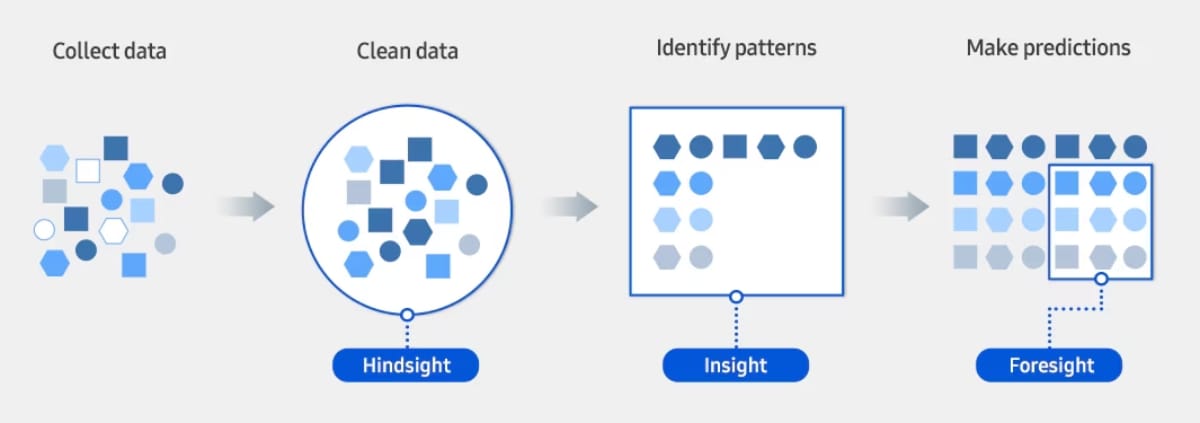
Understanding Predictive Analytics
The core of predictive analytics is analyzing data from the past and present to forecast future events. For finding new potential customers, it uses various types of data like people's ages and other demographics, their browsing history online, what purchases they've made before, and how they interact on social media. By identifying patterns and connections within all this data, AI algorithms can score leads based on how likely they are to actually become a customer. This allows marketers to focus their efforts on the prospects that seem most promising.
The Power of Predictive Scoring
Predictive lead scoring is a game-changing innovation for finding new potential customers. It ranks leads on a scale from high to low, based on how likely they are to actually become a paying customer. This is determined by their past interactions with the company and other relevant information. This scoring system helps businesses prioritize which leads to contact first, customize their marketing messages, and allocate their resources more effectively. Ultimately, it increases the efficiency and success rate of their lead generation campaigns.
Case Study: Predictive Analytics in Action
As an example, consider a leading e-commerce website that used predictive analytics to improve how they find new potential customers. By analyzing data about their customers, the website could identify key behaviors and characteristics of the customers most likely to make a purchase. This insight allowed the company to create marketing campaigns specifically targeting people with similar profiles, which significantly increased the number of potential customers actually buying their products. For instance, they found that customers who watched product videos were more likely to make a purchase. So they prioritized contacting potential customers who had engaged with their video content, resulting in a 20% increase in sales from those targeted potential customers.
The Benefits of Predictive Analytics
- Efficiency: By focusing on leads with the highest conversion potential, businesses can optimize their marketing efforts and resources.
- Personalization: Predictive analytics allows for more targeted and personalized marketing strategies, improving customer engagement and satisfaction.
- Forecasting: Beyond lead generation, predictive analytics can forecast sales trends, helping businesses prepare and strategize accordingly.
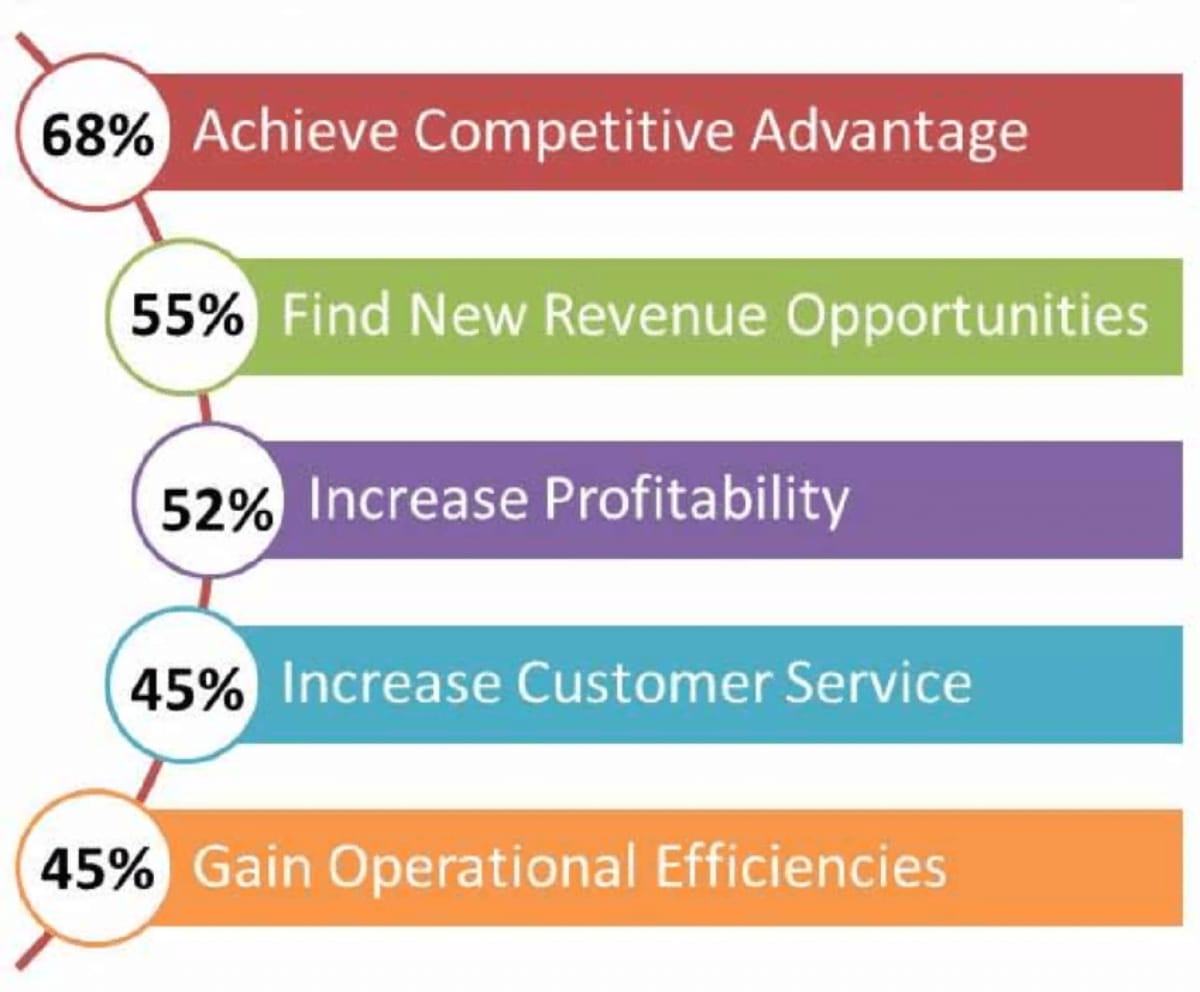
Leveraging Predictive Analytics
To effectively use predictive analytics for finding new potential customers, businesses should start by collecting and combining data from various sources to ensure they have a comprehensive set of data. Implementing the right tools and platforms with predictive analytics capabilities is crucial. Continuously analyzing the data and refining strategies based on the predictive insights will lead to improvements in the quality of potential customers identified and the rates of converting them into actual customers.
Predictive analytics is a powerful tool that AI provides for finding new potential customers. By harnessing the power of data and predictive insights, businesses can identify and engage high-quality potential customers more effectively than ever before. As we continue exploring the secrets of using AI for lead generation, it becomes increasingly clear that technology will shape the future of marketing strategies.
Secret 2: AI-Powered Chatbots for 24/7 Lead Engagement
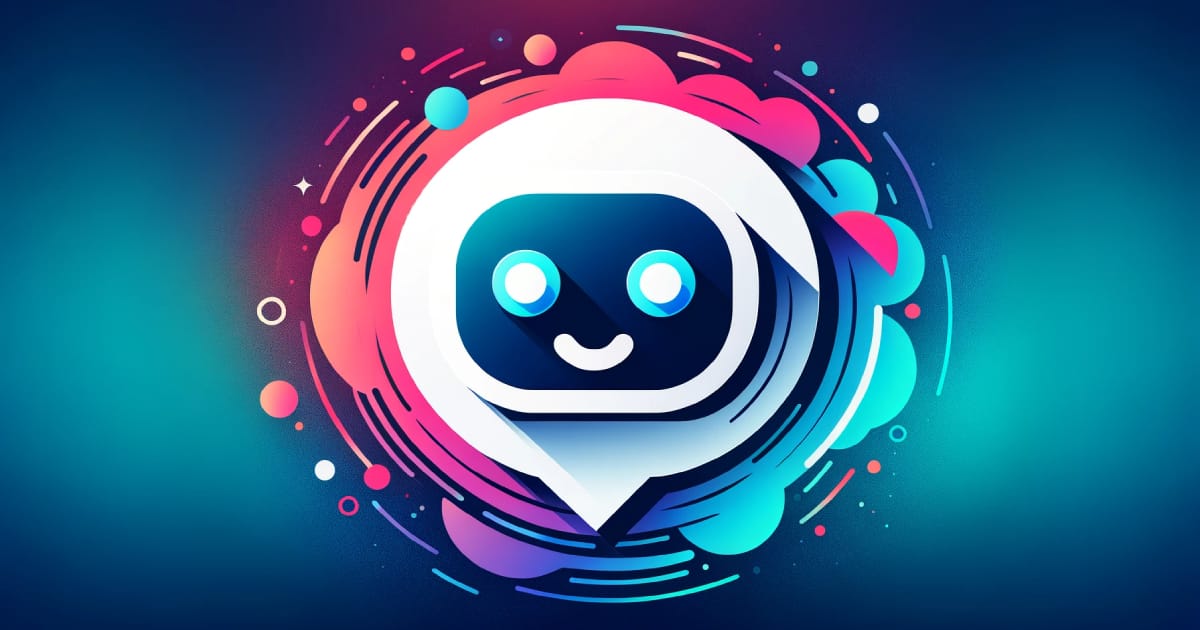
Today, people expect to talk to someone right away, more than ever before. AI chatbots are a big step forward in doing this. They help businesses talk to potential customers any time of the day. These smart chatbots do more than just help customers. They work like online helpers that can pick out good leads, answer questions, and even make sales, all on their own, without needing a person to help.
The Evolution of Chatbots
In the beginning, chatbots were basic and followed set rules. They could only answer certain questions with answers they already had. But now, with AI and learning from experience, chatbots have become much smarter. They can understand how we naturally talk, learn from talking to people, and answer more difficult questions. They can even give answers that fit what you like or have done before, by remembering your past talks and choices.
Enhancing Lead Engagement
AI chatbots are great at keeping potential customers interested because they can answer questions right away, any time, day or night. This means people stay connected with your brand and are less likely to lose interest if they have to wait for an answer. Also, AI chatbots can figure out which potential customers are really interested and ready to buy by asking them specific questions. Then, they can tell the sales team about these good leads so they can follow up.
Case Study: A Real Estate Success Story
A good example of how AI chatbots help get more customers is in the real estate business. A big real estate company put an AI chatbot on its website to talk to people looking to buy homes. The chatbot asked visitors about what they want, their budget, and when they plan to buy, to make sure they are good leads before telling the real estate agents about them.
The results were impressive. In just the first three months, the company got 50% more good leads. Also, the chatbot took over the easy questions, which meant the customer service team had more time to deal with harder questions.
Benefits of AI-Powered Chatbots
- 24/7 Availability: AI chatbots can engage with customers around the clock, ensuring that no lead goes unattended.
- Scalability: Chatbots can handle a large volume of interactions simultaneously, allowing businesses to scale their lead engagement efforts without proportional increases in costs.
- Personalization: Through machine learning, AI chatbots can offer personalized interactions, improving the user experience and increasing the likelihood of conversion.
- Data Collection: Chatbots also serve as a valuable source of data, collecting insights from interactions that can inform marketing strategies and improve lead targeting.
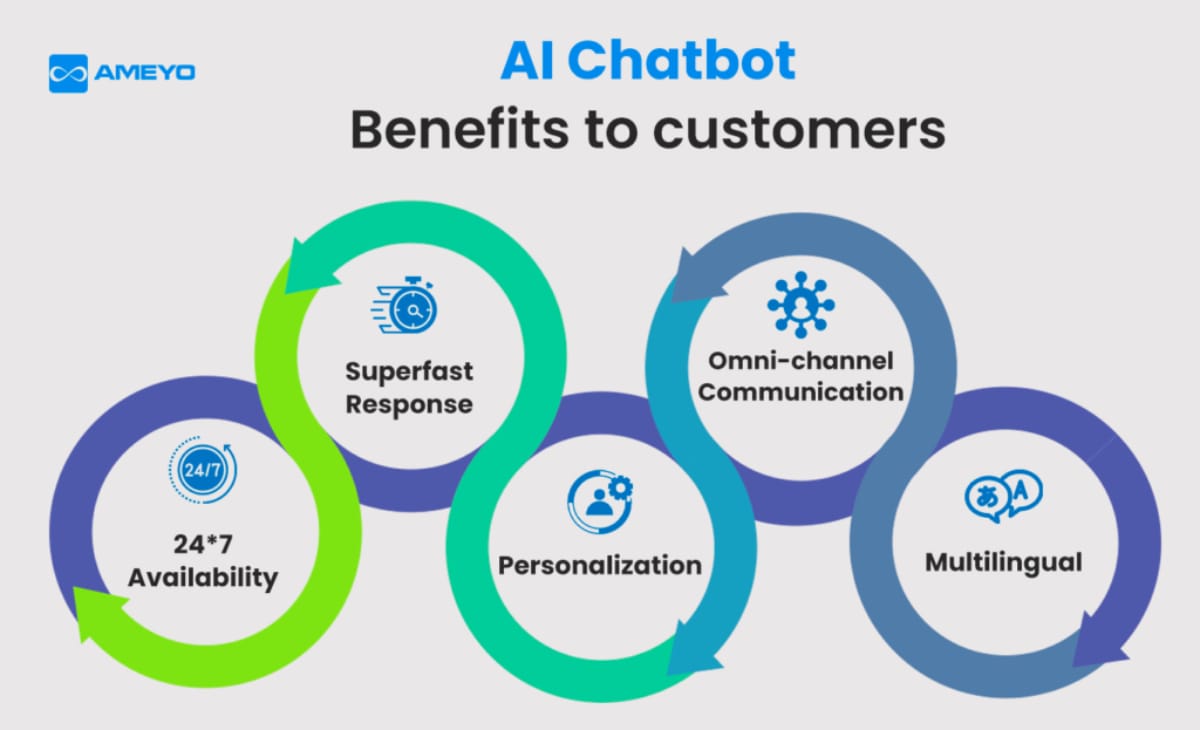
Implementing AI Chatbots
To use AI chatbots well, businesses need to first figure out what questions and interactions their customers usually have. This helps make the chatbot's conversations flow better and make sure it can answer most questions. Also, connecting the chatbot to the business's current customer management systems helps collect and look at data better, which improves how the business finds potential customers.
AI chatbots are really changing how businesses talk to and find potential customers. By giving quick, personal answers, chatbots make the customer's experience better, improve how businesses find good potential customers, and play a big part in getting more customers overall.
Secret 3: Content Personalization to Increase Conversion Rates
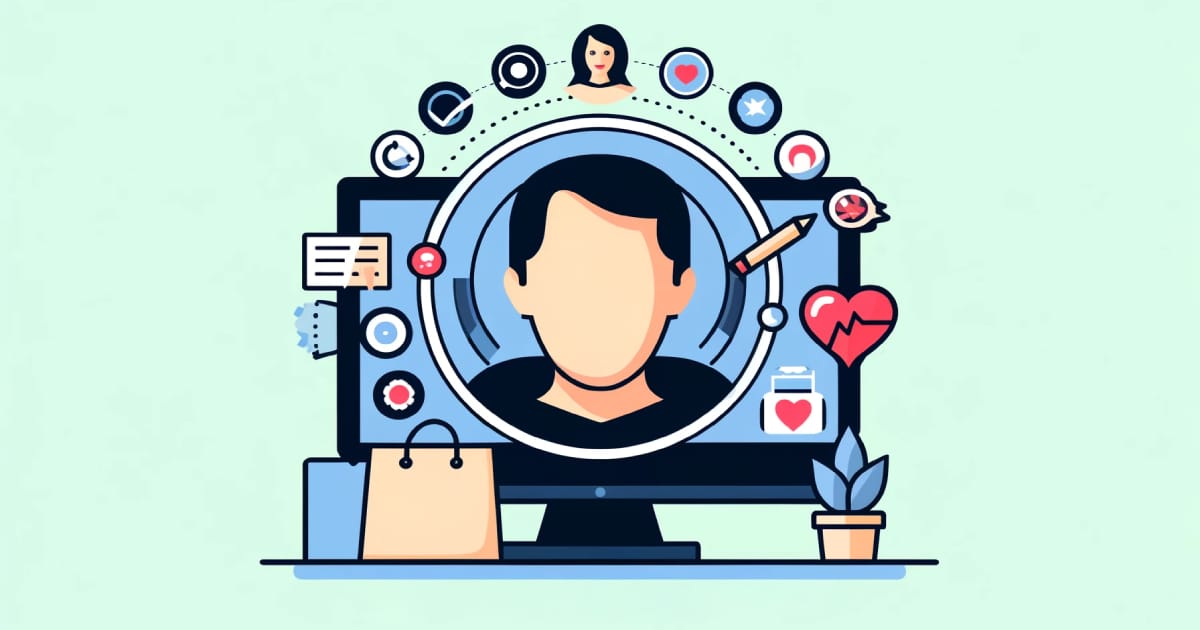
Content personalization with AI means changing content to fit each person's own needs and likes. This way, the perfect message gets to the right person when they need to see it. Using AI, businesses can look through a lot of data to understand how customers act, what they like, and how they interact with content. This helps businesses give people very personal content.
The Mechanism Behind AI-Driven Personalization
AI content personalization uses smart learning systems to look at user data like past actions, what they look at online, what they buy, and what they do on social media. This helps find patterns and likes that are special to each person. With this info, AI can change the content for each person on websites, in emails, or on social media. This makes sure everything they see is interesting and related to what they like.
Enhancing User Engagement and Conversion
Personalization's strength is in making each person feel special and valued. For example, online shopping sites use AI to suggest products that someone will probably like, based on what they've looked at before and what they've bought. This kind of personal touch makes the shopping experience better and makes it more likely that the person will buy something, because the suggestions fit what they like.
Case Study: E-Commerce Success through Personalization
A great example of how personalizing content works well is a big online shopping company that used AI to make shopping feel more personal for each user. They looked at user data to recommend products, adjust search results, and send customized emails. This strategy made a lot more people interested and led to a 35% increase in sales because of the personalized content. The company was really good at showing users products they would like, which turned casual looking around into actual shopping based on what the users were interested in.
The Benefits of Content Personalization
- Increased Engagement: Personalized content is more engaging to users, leading to longer visit durations and more frequent interactions with the brand.
- Higher Conversion Rates: By making content more relevant to the individual, businesses see higher conversion rates as users are more likely to take action when the offer suits their needs.
- Improved Customer Satisfaction: Personalization enhances the overall customer experience, leading to increased satisfaction and loyalty.
- Efficient Use of Marketing Resources: Targeting content more effectively reduces waste in marketing efforts, ensuring that resources are focused on the most promising leads.
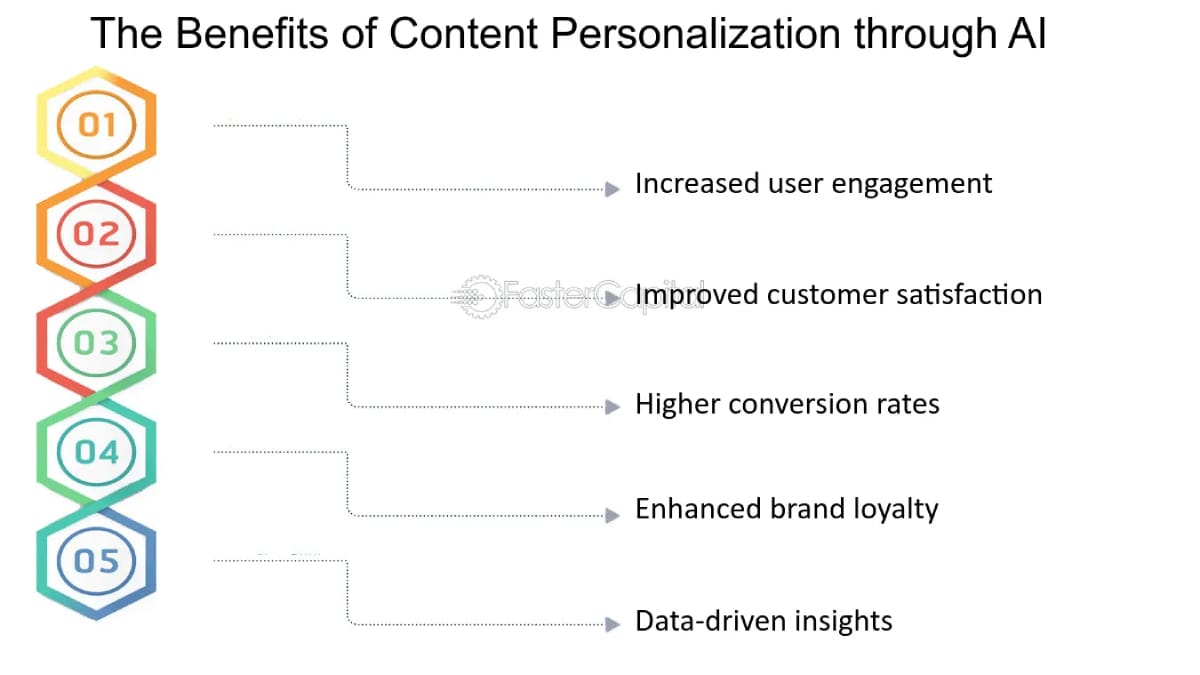
Implementing Content Personalization
To start using AI for making content more personal, businesses need to set up a good system for gathering and understanding data. This means using AI tools that can look at user data right away. Making content that can change based on what the AI learns about each user is also key. It's important for businesses to keep testing and improving their personalization methods by listening to what users say and watching how their actions change, to keep things working well.
Making content personal is a big part of today's ways to attract customers, and AI is really important in making this possible and effective. As businesses try to connect with their audience in more meaningful ways, being able to offer personalized content with the help of AI will keep being a big factor in their success.
Secret 4: Optimizing Email Campaigns with AI

Email marketing is still an important part of online marketing because it brings a good return on investment and is effective in getting the attention of potential customers. But, as more businesses use digital marketing, it's getting harder to stand out. This is why businesses are using AI to make their email campaigns better. AI helps by looking at data to guess what users will do next and making emails more personal. This way, emails are not just sent to the right people but also speak to them in a way that feels personal, making the email campaigns work better.
AI's Impact on Email Personalization
AI in email marketing is really powerful at making emails special for each person, even when sending lots of emails. Instead of just grouping people together, AI looks at what each person does, what they like, and how they've interacted with emails before to make each email just for them. This could mean changing the email's subject, suggesting products they might like, or offering discounts that match what they're interested in. By making sure every email feels like it's meant just for them, businesses can get more people to open emails, click on links, and buy things.
Predictive Analytics for Optimal Send Times
AI helps marketers figure out the best times to send emails to each person. It looks at when people usually open and interact with emails. Then, AI schedules the emails to be sent at these best times. This careful planning means emails have a better chance of being noticed and responded to, which can really help improve how many people open, read, and take action because of the emails.
Case Study: Retailer's Revamped Email Strategy
A good example of how AI can help with email marketing is a story about a retail company. This company started using AI to change how they send emails. The AI looked at detailed information about how people behave to divide the audience into groups. This let the company send emails that were very personalized. Also, the AI figured out the best times to send emails to each group. Within six months, this led to a 40% increase in how many people opened the emails and a 25% increase in how many clicked on links in the emails. Using AI this way didn't just make customers more interested; it also made the company's sales from emails grow substatially.
Benefits of AI in Email Campaigns
- Enhanced Personalization: AI enables a level of personalization that goes beyond basic segmentation, making emails more relevant and engaging to each recipient.
- Optimized Sending Times: Predictive analytics ensure that emails are sent when recipients are most likely to engage, increasing the effectiveness of campaigns.
- Improved Efficiency: AI automation saves time and resources, allowing marketers to focus on strategy and creative content rather than manual segmentation and scheduling.
- Data-Driven Insights: Continuous learning from user interactions provides insights that refine email marketing strategies over time, leading to better results.
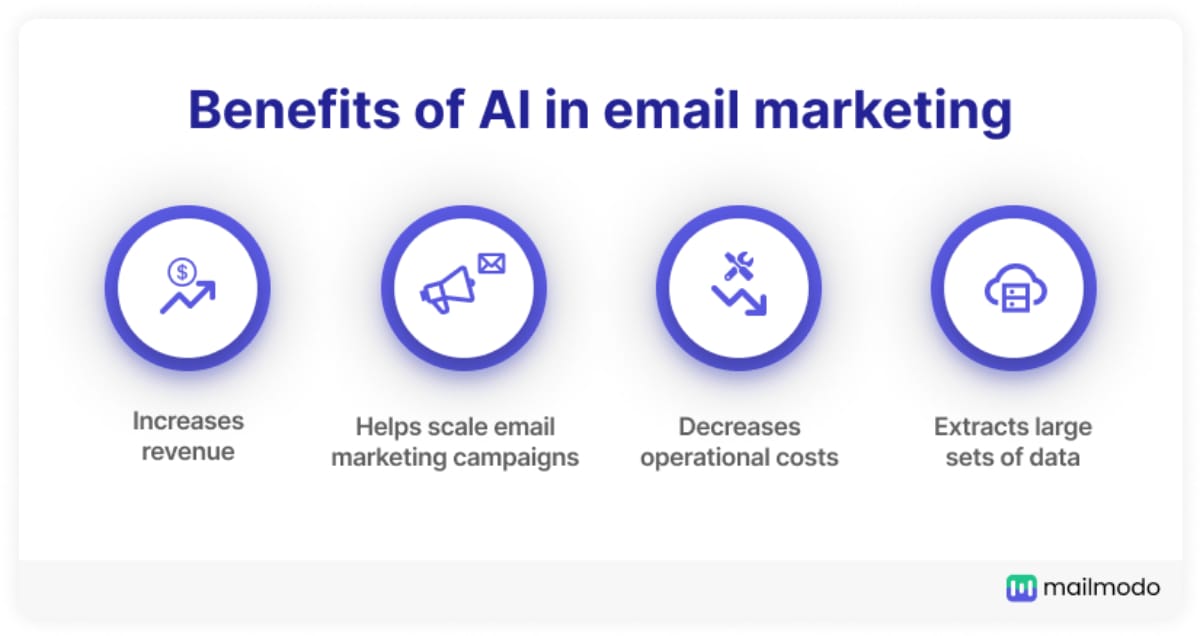
Implementing AI in Email Marketing
To use AI in email marketing, businesses need to start by using AI tools that can look at customer data and automatically make personalized emails. It's important to have clear goals, like wanting more people to engage or to increase sales, to help guide how you use AI. Also, it's key to regularly check how well the emails are doing by looking at the data from the AI tools. This helps you know what's working and keep improving your emails for better results.
AI has changed email marketing from a general approach to a precise method that sends personalized messages at the best times. Looking ahead, being able to make email campaigns better with AI will keep being an important part of doing well in digital marketing.
Secret 5: Leveraging AI for Social Media Lead Generation
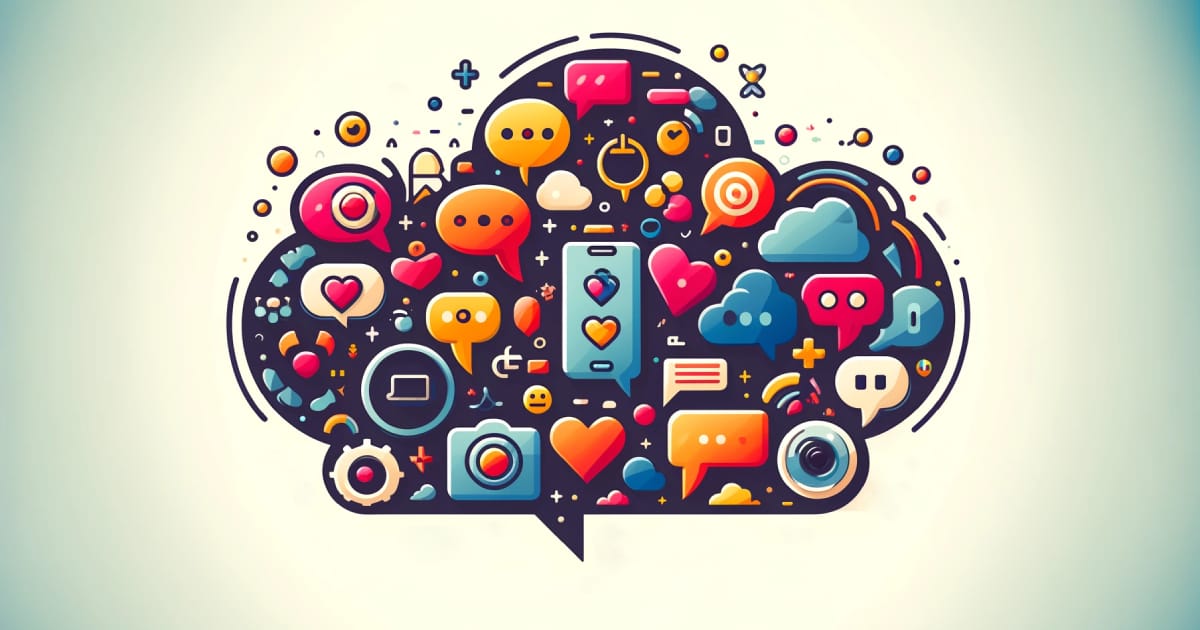
Social media platforms are great places for businesses to find potential customers because they can reach a lot of people directly. But, because there's so much content and so many other businesses trying to do the same thing, it's hard to stand out. This is where AI can help. AI offers new ways and tools to not just grab people's attention but also to find and take care of potential customers better on social media.
AI-Driven Targeting and Personalization
AI's big advantage in social media marketing is that it can look through data to pick out and focus on specific groups of users. By figuring out what users like, how they act, and what they pay attention to, AI can help businesses make their posts and ads more appealing to the right people. This makes social media efforts more relevant and better at finding potential customers.
Also, AI can make sure money spent on ads is used wisely. It does this by changing who sees the ads and how much is bid for ad space based on what's working best in real-time. This smart use of the budget not only cuts down on wasted money but also increases the return on investment from social media ads.
Chatbots for Social Media Engagement
AI chatbots have moved beyond just being used on websites and emails; they're now a key part of social media strategy too. On platforms like Facebook Messenger, chatbots can start talks with potential customers, answer questions right away, and help guide people towards making a purchase. These chatbot conversations are personalized, which means they change based on what the user has done on social media and their past chats. This makes each conversation feel special and directly meant for the user.
Case Study: Boosting Engagement Through AI on Instagram
A cool way a beauty brand used AI for finding customers on social media was by improving its Instagram. The brand used AI to look at pictures and hashtags about beauty trends, figuring out what its target customers liked and talked about. This helped the brand make content that really connected with potential customers, leading to more followers and more people interacting with their posts.
The brand also started using an AI chatbot on Instagram Direct, which gave personalized product suggestions and answered questions instantly. This way of talking directly with people made more of them interested in buying, showing how AI can turn social media chats into chances to make sales.
Benefits of Leveraging AI on Social Media
- Enhanced Targeting: AI's data analysis capabilities enable precise targeting, ensuring that content reaches the most relevant audience segments.
- Increased Engagement: Personalized content and interactions foster a higher level of user engagement, driving more leads.
- Efficient Ad Spend: AI optimizes advertising budgets, focusing resources on high-potential leads for better ROI.
- Improved Conversion Rates: Personalized engagement strategies, facilitated by AI, can lead to higher conversion rates from social media platforms.
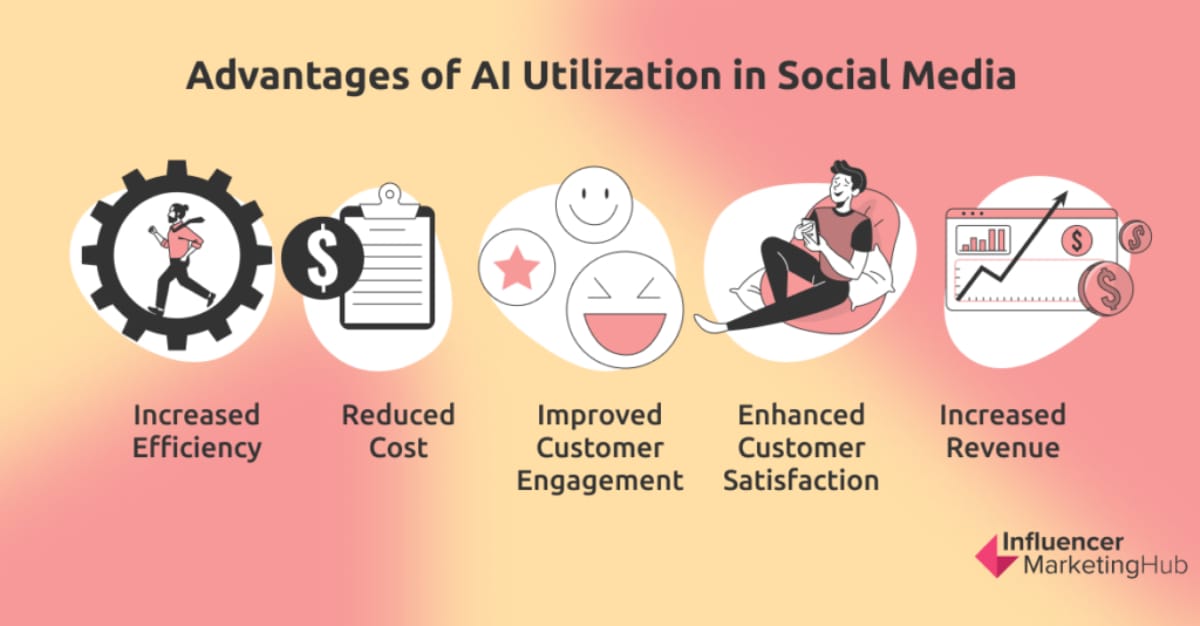
Implementing AI in Social Media Strategies
Businesses wanting to use AI in their social media plans should first find out which social media sites their target customers use the most. Using AI tools that can tell you about user habits and likes on these sites can help decide what kind of content to make and who to show ads to. Also, setting up chatbots for quick talks can make the online experience better for users and help find potential customers.
AI gives a bunch of tools and features that can really help with finding new customers on social media. By using AI to make targeted content, talk in a personalized way, and use ad money wisely, businesses can find new ways to reach out to and turn their social media followers into valuable customers.
Final Thoughts
We have shown how AI can revolutionize digital marketing for finding new potential customers. AI enables predictive analysis, chatbots, personalized content, optimized emails to improve efficiency, and effectiveness and personalization in social media. Using AI allows businesses to better understand the complex digital world. AI analyzes big data to identify high-quality leads, interact personally, and convert more leads. The key is using AI applications that fit your goals and customers.
This article shares examples of AI's real impact across industries, improving lead quality, engagement, and marketing ROI. This proves AI creates responsive, customer-focused strategies. As digital marketing evolves, integrating AI is crucial. Businesses utilizing AI opportunities will gain advantage by connecting deeper with customers. In summary, the future of lead generation is linked to AI advancements. These AI secrets are just the beginning of an exciting journey.
Key Takeaways
| Secret | Simple Takeaway |
|---|---|
| 1. Predictive Analytics | AI helps find the best leads by analyzing data. |
| 2. AI Chatbots | Chatbots talk to customers any time, helping answer questions and keep them interested. |
| 3. Personalized Content | AI makes content that fits what each person likes, making them more likely to engage. |
| 4. Optimized Email Campaigns | AI sends emails at the right time to the right people, making emails more effective. |
| 5. AI on Social Media | AI helps create and share content that attracts more leads on social media. |





